LATEST INSIGHTS
Your Present Location: LATEST INSIGHTS-
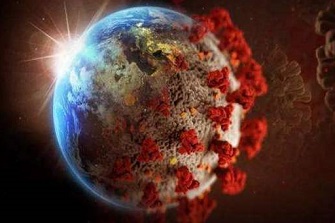
Wang Wen: Will coronavirus bring world to dark age?
When the novel coronavirus broke out about five months ago, people thought the virus would be something like SARS - a terrifying infectious disease that hit them hard in 2003. It was unthinkable for almost everyone that COVID-19 would become such a severe pandemic. As of press time, there have been over 10 million confirmed cases of COVID-19 around the world with more than 501,000 deaths. As a comparison, a total of 8,098 people worldwide became sick with SARS during the 2003 outbreak, and 774 of them died. Moreover, due to some countries' loose handling of COVID-19, the downward inflection point in terms of worldwide cases has yet to come.
2020-06-30 -
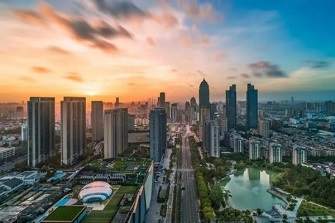
Liu Zhiqin Interviewed by CRI on China's Economy
Profits of China's major industrial firms rose 6 percent year on year to 582.3 billion yuan (82.28 billion U.S. dollars) in May due to the easing of cost pressures on producers and gradual recovery of market demand, data from the National Bureau of Statistics (NBS) showed Sunday. Liu Zhiqin, a senior fellow at Chongyang Institute for Financial Studies, Renmin University, interviwed by Biz Today and shared his opinion.
2020-06-30 -
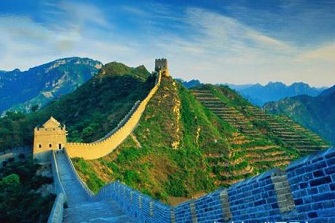
Wang Wen: Making Polarisation? China Can, but Won’t
US scholars proposed the concepts of “G2” and “Chimerica” a decade ago. At present, the total GDP of China and the United States exceeds 40% of the world’s total, their combined military expenditures exceed 45% of related global spending, and they account for more than 65% of the world’s R&D investment. According to the assumptions of those US scholars, a pattern of G2 or polarisation has already emerged. But the fact is that the Chinese government and the nation’s academic circles have not yet affirmed the emergence of a G2, and are even more reluctant to move towards a polarised global paradigm with the United States.
2020-06-30 -
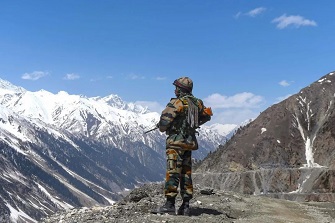
Lin Minwang: India lifting arms rules at border endangers its own security
India has reportedly reset the rules of engagement with Chinese troops along the China-India border. The Indian Army gave their troops "complete freedom of action" to handle situations. More specifically, they are permitted to do this with "any aggression by China" at the tactical level. Field commanders will also be allowed to use firearms in "extraordinary" circumstances on the Line of Actual Control, according to Indian media reports.
2020-06-29 -
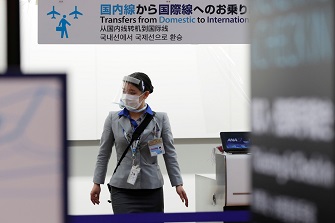
Pandemic has changed regional dynamics
He Yafei, a former Chinese viceminister of foreign affairs, outlined several key points that should be put on top of the security threat list for the Asia-Pacific region. Any possible deterioration of tension among major powers needs to be prevented because it could lead to military confrontation, he said, suggesting that crisis management or dialogue within a consultation mechanism to deal with crises has to be put in place.
2020-06-29 -
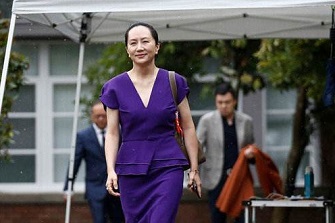
Huawei CFO Meng’s extradition ordeal does not augur well for Canada: Chinese insiders
Hearings on Huawei chief financial officer Meng Wanzhou's extradition case will be extended to April 2021, the British Columbia Supreme Court said Tuesday, igniting vehement indignation among Chinese public, who claim the prolonged schedule further testifies Canada's role in Meng's being politically caught and trapped in Canada, which acts as an accomplice of the current US government.
2020-06-29 -
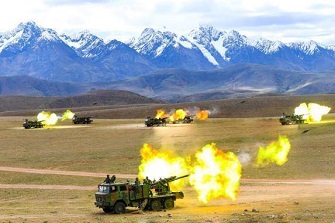
Nationalists of India ‘blindly optimistic’ over nation’s military
Experts said Indian side boasting about their country having made dual preparations for military and diplomacy with China blindly optimistic, because they refuse to acknowledge the gap between India's weaponry, deployment and equipment and those of China and India's initial border provocations have squeezed its bargaining room in talks with China.Indian military also reportedly would give Indian troop deployed at border the freedom to use firearms under "extraordinary circumstances", which seriously adds to the mistrust between the two sides.
2020-06-29 -
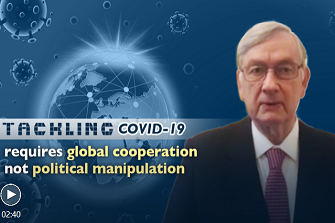
Danilo Türk: Tackling COVID-19 requires global cooperation, not political manipulation
How should the world respond to the COVID-19 pandemic? How can we stabilize the global economy? Danilo Türk, former President of Slovenia and a non-resident senior fellow at the Chongyang Institute for Financial Studies at Renmin University of China, shares his views on the issue.
2020-06-28 -
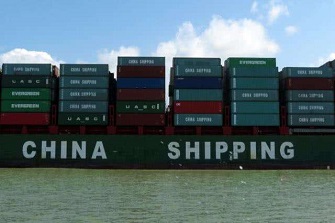
India ‘holds' Chinese goods from clearance, to backfire and hurt global industrial chains
India is reportedly putting some containers from China on hold during clearance for all-round inspection and scrutiny amid the recent stand-off between the two nations, following a fatal border clash. It is a stupid choice which will backfire and hurt global industrial chains, a Chinese expert said.The latest commander-level bilateral talks have eased tensions between the two countries, and India, after a deadly provocation, realized it was not wise for the country, Long said. He thinks the scenario will not last long due to India’s huge economic costs
2020-06-28 -
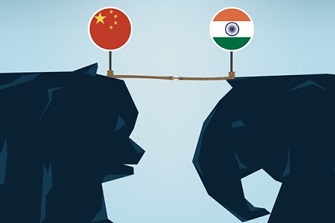
Long Xingchun: Time to cool down Indian nationalism
Commander-level talks between Chinese and Indian border troops were held on Monday. It was the first such meeting following the Galwan Valley deadly brawl on June 15. The dialogue is significant as the two sides are able to understand each other's bottom line better, amid the border tensions. The last round of bilateral commander-level talks was held on June 6. By then, both sides agreed to avoid escalating their disputes, to work together to uphold peace and tranquility along the border, and to create a favorable atmosphere for the sound and stable development of bilateral relations. Reports show both China and India agreed to disengage their troops in sensitive areas.
2020-06-28 -
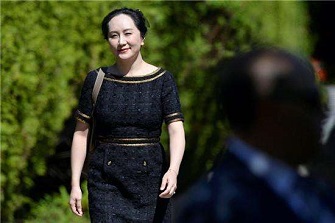
China slams Canadian media for misreporting stance on Meng, Kovrig
The Chinese Embassy in Canada slammed Canadian media for misrepresenting statements made by Michael Kovrig's wife as those of a Chinese spokesperson, and for claiming China had linked Meng Wanzhou's case to those of Michael Kovrig and Michael Spavor. A Chinese Foreign Ministry spokesperson quoted statements by Kovrig's wife in his remarks on June 24, but Canadian media deliberately reported these remarks as a spokesperson's statement, and claimed China had linked Meng's case to those of Kovrig and Spavor, the Chinese Embassy in Canada said in a statement on Saturday.
2020-06-28 -
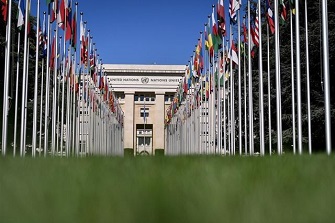
William Jones: Controversial Legislation on Xinjiang Purely Political Ploy
President Donald Trump on June 17 signed into law the Uygur Human Rights Policy Act of 2020. The legislation is based on the fallacious argument that what China is doing with its law enforcement measures in Xinjiang, which have been highly exaggerated in the Western media, is not to prevent terrorism, but rather to oppress the Uygur population. But the nature of this bill has little to do with any alleged “compassion” toward an “oppressed minority,” but rather is a matter of pure politics and an integral part of a consistent policy of containing China.
2020-06-26 -
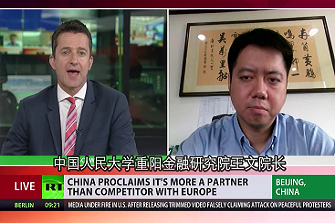
Wang Wen: The conspiracy of the United States and Europe to engage in a cold war against China has been broken
Both China and EU do appear to be keen to make progress. Wang Wen, the Executive Dean of Chongyang Institute for Financial Studies at Renmin University of China (RDCY), interviewed by Russia's top international media "Russia Today" (RT) and shared his opinions on the chances of a major breakthrough. The following is the full text of the interview.
2020-06-24 -
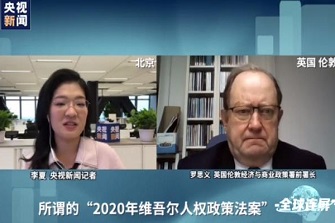
John Ross: China's poverty alleviation makes great contributions to World Human Rights
In response to the United States irresponsible remarks on China's human rights, CCTV gave an exclusive interview with John Ross, the senior fellow of Chongyang Institute for Financial Studies at Renmin University of China (RDCY) on this issue.
2020-06-24 -
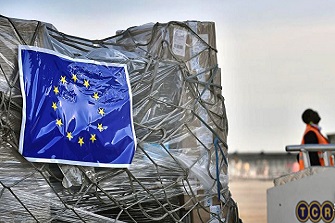
EU advised to refrain from 'politically correct' values for China ties
The Europe and China attached greater importance to pragmatic cooperation, despite some Western media described that the EU-China summit on Monday concluded with more differences than consensus. Chinese observers on EU affairs pointed out that EU defending their so-called values by bringing up a number of issues such as Hong Kong, Xinjiang and human rights could be interpreted as building a "spiritual fortress" in the face of China's growing influence.
2020-06-24 -
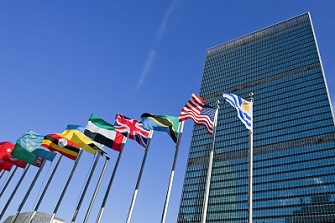
Slawomir Majman: It is time for redefining global order
What will happen when the international community contains the nightmarish novel coronavirus pandemic? Avoiding easy comparisons, it is worth recalling how 10 years ago Western pundits prophesied a complete transformation of the world economic order when in reality nothing significant has changed. But despite not knowing much about the future, we can be almost certain that after the pandemic, China will be in a completely different position.
2020-06-24 -
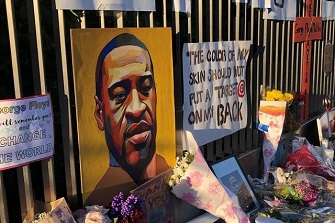
Zhao Minghao: Pompeo’s attack on UN Human Rights Council invokes loathing
Large-scale demonstrations are taking place across the US, during which protesters appeal for justice for African Americans and other ethnic minorities in the US. They demand an end to racial discrimination and police brutality. In this regard, the UN Human Rights Council has every reason to intervene and take action. It was indeed the relatives of Floyd and other victims of police violence, along with hundreds of human rights groups, that urged the UN Human Rights Council to investigate racism in the US.
2020-06-24 -
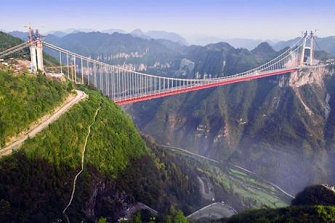
Wang Wen: West should seek fair stories and modernize its minds about China
It is unrealistic to think that there aren't negative things happening in China. Unfair even evil deeds do take place from time to time. The burden to reduce poverty and increase employment remains heavy. The Chinese people have undergone a difficult time in fighting the novel coronavirus. When observing anything under a microscope, bacteria and dirt will always be spotted. It has to be understood that China's great changes and structural trends have varying degrees of good and evil, positive and negative, with progress and setbacks.
2020-06-23 -
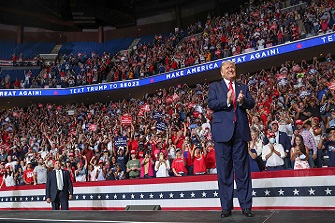
Zhao Minghao: Stakes are high for Trump to restart campaign rally
On June 20, Trump held a comeback campaign rally in Tulsa, Oklahoma. Compared with Trump campaign's previous boast that more than one million people had requested tickets to attend, the crowd at the rally was actually not very big. The low turnout at the rally has drawn mockery from American media and many Democrats. Although the rally was quieter than expected inside the arena, the scene outside was pretty boisterous. Over the past few days, many anti-racism protesters have gathered in this small city. There were so many of them that the mayor of Tulsa even imposed a curfew on the grounds of preventing riots.
2020-06-23 -
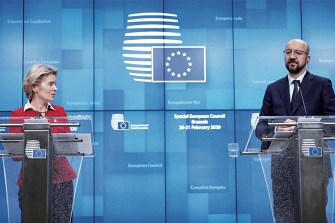
China, EU seeks to inject momentum in recovery
The 22nd EU-China summit took place on Monday via videoconference during which Chinese President Xi Jinping and Premier Li Keqiang met with Charles Michel, President of the European Council, as well as Ursula von der Leyen, President of the European Commission. Issues addressed at this virtual meeting included cooperation on the COVID-19 response, China-US relations, and other global and regional issues.
2020-06-23
























































































 京公网安备 11010802037854号
京公网安备 11010802037854号





